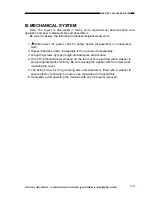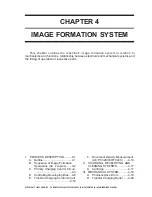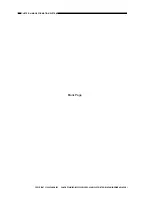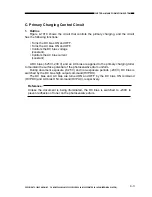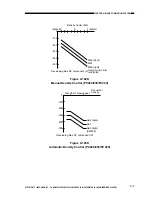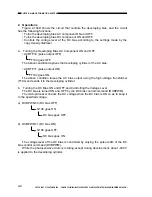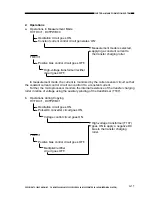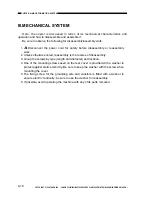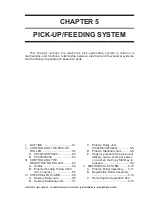
COPYRIGHT © 1998 CANON INC. CANON PC400/420/430,FC200/220 REV.0 JAN.1998 PRINTED IN JAPAN (IMPRIME AU JAPON)
4-6
CHPTER 4 IMAGE FORMATION SYSTEM
Density Control Lever
9
5
1
(darker)
(lighter)
0
-100
-200
-300
-400
-500
Developing bias DC component (V)
Figure 4-101D
Manual Density Control (PC400/FC200)
D.
Controlling Developing Bias
1. Outline
Both AC bias and DC bias are applied to the developing cylinder during copying
operation.
When the photosensitive drum is rotating except during development, about -400 V
is applied to the developing cylinder regardless of the settings made by the density con
trol dial/lever, thereby preventing adhesion of excess toner on the surface of the photo
sensitive drum.
The copier controls the copy density by varying the voltage of the DC component of
the developing bias (-120 to -560 V) based on the following:
• Setting made by the density control dial/lever (manual density control).
• Output of the AE sensor (automatic density control; PC420/430/FC220).
• Setting made by the density correction switch (SW606; PC420/430/FC220).
The density correction switch (SW606) on the control panel PCB allows three set
tings by the user. Advise the user to change the setting if the copies tend to be foggy
because of shifts in the sensitivity of the photosensitive drum. SW606 is valid for man
ual density control as well.
Figure 4-101D,102D shows the changes in the DC component of the developing
bias caused by the density control dial/lever in manual density control mode; Figure 4-
103D, on the other hand, shows changes in the DC component of the developing bias
caused by different document densities in automatic density adjustment mode (AE).
Note:
The copier does not change the developing bias between black toner and color
toner. This is because the color toner used by the copier is a single-component
agent, which allows the use of the same developing bias as for the black toner for
development.




